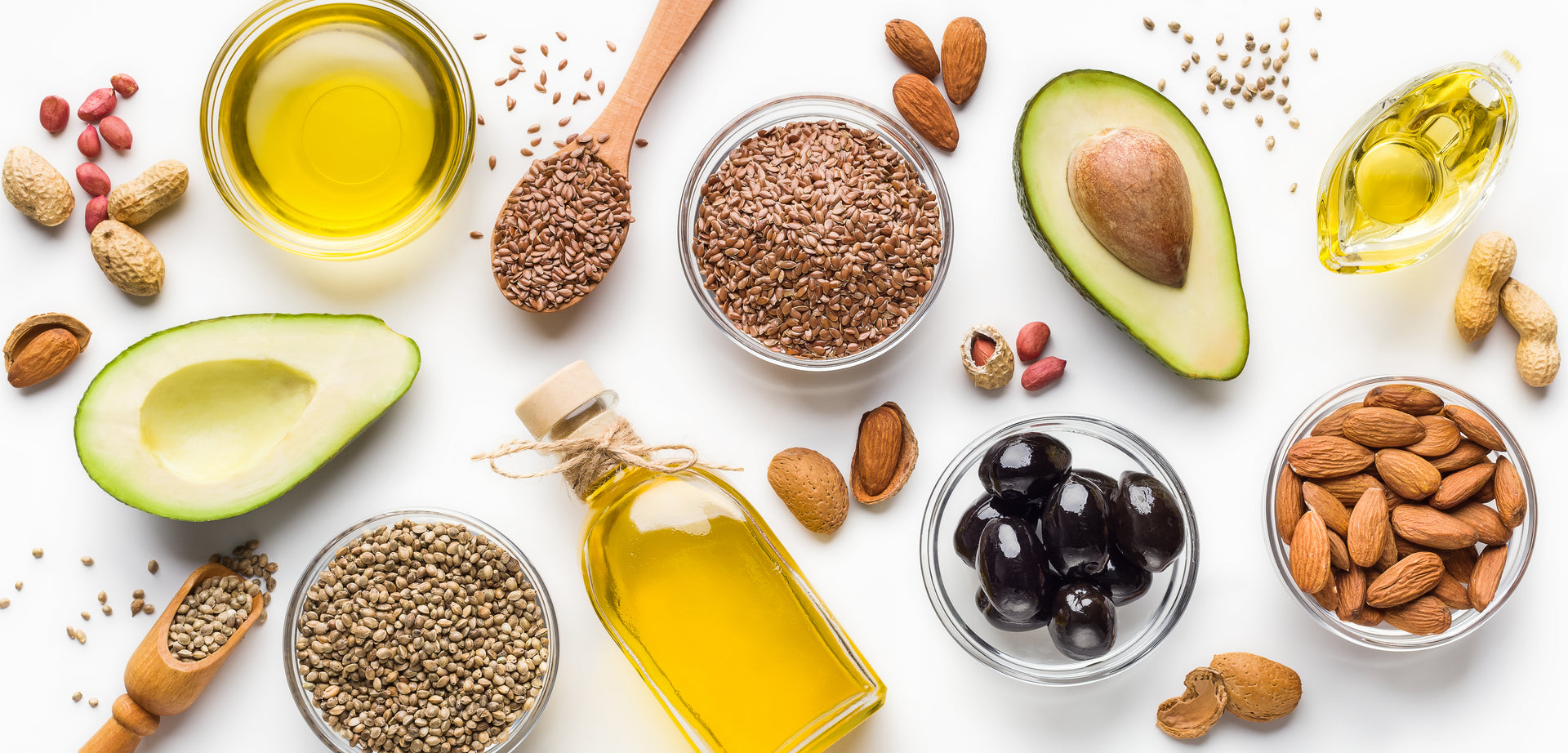Algal vs Flaxseed omega-3
Taking charge of your health and wellness.
Whether it’s yoga, exploring plant-based diets, or the growing popularity of holistic health supplements and treatments, many of us have begun to take a more active role in managing our own health and wellness. Simply put, making good choices for healthy living comes down to having the right information. Plant-based omega-3 supplements are a great example – did you know there are different options to choose form, and that they are absorbed by the body in different ways?
Giving your body what it needs.
Getting plenty of high-quality sleep, eating a variety of healthy foods that include fresh, unprocessed food, and making sure that you get enough exercise is a good beginning to building a strong foundation for overall health and immunity. But – not all of the elements we need for health and wellness are produced naturally by the body. Omega-3 is one such element. The only way to get this essential fatty acid is incorporating foods rich in omega-3 into our diet.[1]
Vegetables and seeds and fish, oh my!
Omega-3 fatty acids can be found in fatty fish and seafood, in marine algae, and in leafy green vegetables, plant oils, nuts and seeds such as walnuts and flaxseeds1,4. It is an essential fatty acid, meaning it is essential to helping our bodies absorb some of the fat-soluble vitamins our bodies need for good health among other benefits.[2],4 Omega-3 is among the nutrients that have been found to have a positive impact on our physical and mental health[3].
The big 3 omega-3 fats.
There are three key types of omega-3 fats: eicosapentaenoic acid (EPA), docosahexaenoic acid (DHA), and alpha linolenic acid (ALA) and they come from two primary food sources: seafood and plants4.
EPA and DHA are typically found in fish, and the microalgae eaten by those fish4. Interestingly, like humans, fish don’t produce their own EPA and DHA4. So, while seafood is a good source of dietary omega-3s, fish actually get their essential fatty acids by eating algae – and now humans can too!4 Some plant-based omega-3 supplements derive their omega-3 from the very same microalgae, in the form of algal oil.
ALA is the form of omega-3 mostly found in plants such as flaxseeds, chia seeds, brussels sprouts, walnuts and hemp seeds4. Flaxseeds and flaxseed oil – produced when the ripened, dried seeds are cold-pressed – are among the most common sources of ALA, and a common source of vegetarian and vegan-friendly omega-3 fatty acids4.
Algal oil-based omega-3 and flaxseed-based omega-3 oils are both plant-based products, and Flaxseed- based omega-3 oils are source of the essential fatty acid ALA. Algal oil based omega-3 are sources of omega-3’s EPA and DHA. So which form of omega-3 is the better choice?
The clearest illustration of the difference between the benefits provided by algae oil versus flaxseed oil is the type of omega-3 fatty acid they provide.
While flaxseed provides large amounts of ALA, it must be converted in the body to the two other forms of omega-3, EPA and DHA, in order to provide the same health benefits to our bodies4,5. In the process, it becomes a far less efficient source of these essential fatty acids, with studies showing that we convert ALA into EPA and DHA at a rate of only 5%. [4] [5]
Algal oil, on the other hand, provides EPA/DHA directly to our body, making it a more efficient way to get those essential fatty acids. Nature’s Way has a variety of algal oil-based omega-3 formulas – for adults, children, and expectant mothers, in liquid form or in softgels, everything you need to take care of your own health, and the health of those around you.
NutraVege Omega-3 Plant Based Softgels
A pure and potent plant-based omega-3, with 500 mg of EPA+DHA in just one fresh mint flavour softgel per day. NutraVege is 100% vegetarian and vegan-friendly. Clean, light fresh mint flavour.
NutraVege Omega-3+D, Plant Based, Extra Strength
This delicious plant-based liquid omega-3 formula tastes delivers a potent1000 mg of EPA+DHA from algal oil, plus 1000 IU of vegan vitamin D derived from lichen. NutraVege is 100% vegetarian and vegan-friendly and supports the maintenance of good health and immune function, as well as eye, brain, and cardiovascular health. All this in just one delicious, grapefruit/tangerine flavoured teaspoon a day!
NutraVege Prenatal Targeted Omega-3, Lemon Ginger
This 100% vegetarian formula supports a healthy pregnancy, as well as neural and vision development in infants when used during pregnancy and breastfeeding. NutraVege Prenatal provides 700 mg of algal-sourced EPA + DHE, making it ideal for expectant mothers who are vegetarian, vegan, or simply prefer plant-based supplements.
NutraVege Kids Omega-3 Plant-Based, Citrus Punch
One yummy teaspoon each day contains 500 mg of EPA + DHA and 500 IU of vegan vitamin D3. NutraVege Kids omega-3 helps to support healthy bones and teeth, brain development and function, and the maintenance of good health in children 1-12 years old.
Make sure that you consult with your healthcare provider or dietician if you have specific questions about how a dietary supplement could benefit you, or before making any changes to your diet or exercise routine.
[1] Harris WS. Omega-3 fatty acids. In: Coates PM, Betz JM, Blackman MR, et al., eds. Encyclopedia of Dietary Supplements. 2nd ed. London and New York: Informa Healthcare; 2010:577-86 taken from: https://shop.natureswaycanada.ca/blogs/news/omega-3s-101
[2] https://www.heartandstroke.ca/healthy-living/healthy-eating/fats-and-oils
[3] https://www.nutrasea.ca/benefits/benefits
4 https://ods.od.nih.gov/factsheets/Omega3FattyAcids-HealthProfessional/
[4] Plourde, M. and S.C. Cunnane, Extremely limited synthesis of long chain polyunsaturates in adults: implications for their dietary essentiality and use as supplements. Appl Physiol Nutr Metab, 2007. 32(4): p. 619-34.
[5] Brenna, J.T., Efficiency of conversion of alpha-linolenic acid to long chain n-3 fatty acids in man. Curr Opin Clin Nutr Metab Care, 2002. 5(2): p. 127-32.



